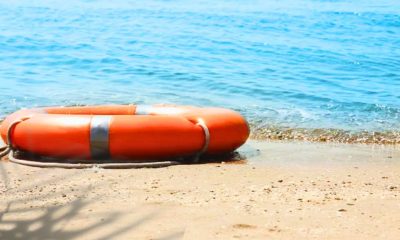News
Power Plant: CEB Revises Tender, Emphasizes 3 Environment-Friendly Power Options

The Central Electricity Board (CEB) is updating its tender process for a new power plant to include stricter environmental requirements. Meanwhile, Khalil Elahee, chairman of the Mauritius Renewable Energy Agency (MARENA), urges policymakers to focus on long-term strategies such as demand management and renewable energy.
The CEB amended its original tender, launched in May, on July 8. The revised specifications now emphasize greater environmental safeguards and allow proposals for land-based alternatives, such as mobile power stations.
This revision comes amid concerns raised by environmental groups, scientists, and media outlets about the risks of using energy barges abroad.
These risks include oil spills, thermal pollution, harmful emissions, damage to coral reefs, and lack of transparency in contracts.
Although the official documents from the CEB did not mention these issues, they have fueled public debate and increased pressure on authorities.
The CEB appeared to want more flexibility, keeping several technological options open. When asked about the project, the Energy Ministry said they are not providing details at this stage.
They confirmed that the tender process is ongoing but are limiting official communication due to the project’s political and environmental sensitivity.
Khalil Elahee emphasized that the use of a power barge should only be a temporary measure.
He stressed the importance of a strategic, long-term approach, integrating demand reduction during peak hours and renewable energy.
Elahee argued that the barge project should not oppose renewables or demand management but complement them.
He suggested exploring other solutions, such as smaller, decentralized mobile power plants that can better adapt to the grid and incorporate solar energy.
He also recommended considering a mix of fossil fuels and biofuels, including up to 10% biomass, in these units.
MARENA is working on a strategic renewable energy plan for 2030, which will be finalized through national consultations and coordinated with other government initiatives like the National Biomass Framework.
Elahee concluded that energy transition is unavoidable. If the power barge project proceeds, it should serve as a catalyst to accelerate renewable adoption, ensuring it remains a temporary solution.
The revised tender is now accepting alternative proposals, including land-based mobile plants that can be installed at existing sites like Fort Victoria or Nicolay.
Interested operators must demonstrate compliance with the new environmental standards and capacity to deliver between 30 and 60 MW in the near term.
While no specific timeline has been announced, the tone has shifted. The urgency to solve the energy crisis remains, but the approach is now more cautious and measured.
Source: l’Express











